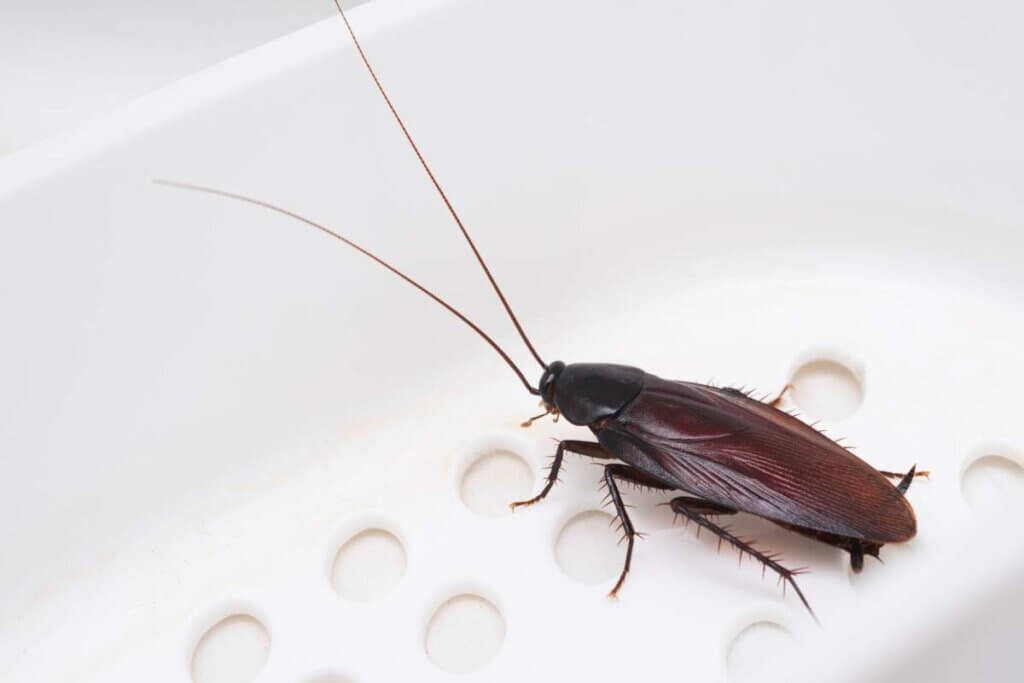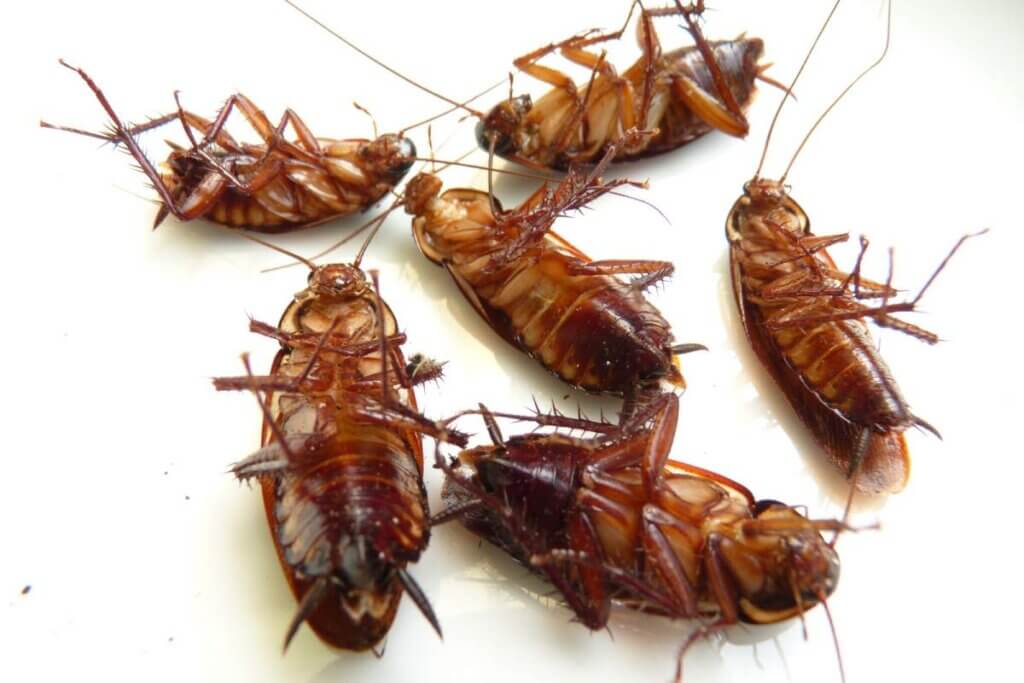Cockroaches are among the most common and reviled household pests, known for their resilience and ability to thrive in various environments. While their mere presence can be unsettling, many people wonder whether these insects pose any real danger to humans.
Beyond their unsettling appearance, cockroaches can indeed be harmful, spreading diseases, triggering allergic reactions, and contaminating food and surfaces. Given the potential risks, it’s important to know how to handle a cockroach sighting in your home and understand the associated costs of professional control in Australia.
This article explores the health risks posed by cockroaches, what to do if you spot one, and how much it might cost to address an infestation.
Similar stories:
Are Cockroaches Harmful to Humans?
Cockroaches are often associated with dirty environments, and many people find them repulsive. But beyond the “yuck” factor, there is a common concern about whether cockroaches are harmful to humans. The answer is yes, they can be harmful, though not in the way some might expect.
Spread of Diseases
One of the primary ways cockroaches are harmful is through the spread of diseases. Cockroaches are scavengers, meaning they feed on a wide range of organic matter, including garbage, sewage, and decaying materials. As they move through these unsanitary environments, cockroaches pick up various pathogens, such as bacteria, viruses, and parasites, on their bodies and legs.
When they then enter homes and other living spaces, they can contaminate food, utensils, and surfaces with these harmful microorganisms. Some of the diseases that cockroaches are known to spread include:
- Salmonella: A type of bacteria that can cause food poisoning, leading to symptoms like diarrhoea, fever, and abdominal cramps.
- E. coli: Another bacteria that can cause food poisoning and more severe infections, particularly in people with weakened immune systems.
- Dysentery: An infection that causes severe diarrhoea, often with blood, due to the presence of certain bacteria or amoebas.
- Cholera: A serious bacterial infection that leads to severe dehydration and diarrhoea, though it’s more common in regions with poor sanitation.
Allergic Reactions and Asthma
In addition to spreading diseases, cockroaches can trigger allergic reactions in some people. Cockroach bodies, saliva, and faeces contain proteins that can cause allergic reactions when they come into contact with the skin or are inhaled. Common symptoms include itching, sneezing, skin rashes, and watery eyes.
More concerning is the link between cockroaches and asthma. Research has shown that people who are exposed to cockroach allergens, particularly in urban areas where infestations are more common, are more likely to develop asthma. For those who already have asthma, exposure to cockroach allergens can make their symptoms worse, leading to more frequent and severe asthma attacks.
Contamination of Food and Surfaces
Cockroaches are not picky eaters; they will consume almost anything, including food, paper, and even hair. When they come into contact with food or food preparation areas, they can contaminate these surfaces with the pathogens they carry. This contamination can happen without you even realizing it, as cockroaches are nocturnal and tend to hide during the day, coming out at night to forage for food.
In addition to spreading diseases, this contamination can spoil food, making it unsafe to eat. This can lead to foodborne illnesses, which can be especially dangerous for young children, the elderly, and those with weakened immune systems.
Psychological Impact
While not a direct physical harm, the presence of cockroaches can also have a psychological impact on humans. Many people have a strong fear or disgust for cockroaches, and seeing them in the home can cause anxiety and stress. This is especially true for those who have a phobia of insects (entomophobia). The stress of dealing with an infestation can also affect sleep and overall well-being.
Prevention and Control
To reduce the risk of harm from cockroaches, it’s essential to keep homes and living areas clean and free of food debris. Regularly taking out the trash, sealing food containers, and fixing leaks can help prevent cockroach infestations. If an infestation does occur, it’s often necessary to seek professional pest control services to eliminate the problem effectively.

What Should You Do If You See a Cockroach in Your House?
Seeing a cockroach in your house can be unsettling, but it’s important to take action quickly to prevent a possible infestation. Here’s what you should do if you spot a cockroach in your home:
1. Stay Calm
While it’s natural to feel disgusted or alarmed, staying calm will help you deal with the situation more effectively.
2. Kill the Cockroach
If possible, try to kill the cockroach immediately. You can use a shoe, a rolled-up newspaper, or a designated bug spray. Be sure to dispose of the dead cockroach in a sealed bag and throw it in an outdoor trash can to prevent any potential spread of bacteria.
3. Clean the Area
Once you’ve dealt with the cockroach, clean the area where you found it. Use a disinfectant to wipe down any surfaces the cockroach may have come into contact with. This helps eliminate any germs or bacteria it might have left behind.
4. Inspect for More Cockroaches
Check nearby areas for signs of more cockroaches. Common places to inspect include:
- Kitchens: Behind appliances, under sinks, and inside cabinets.
- Bathrooms: Near drains, in cabinets, and behind the toilet.
- Basements and Garages: In dark corners, under boxes, and near water sources.
5. Seal Entry Points
Cockroaches often enter homes through small cracks and gaps. Inspect your home for potential entry points, such as:
- Cracks in walls or floors
- Gaps around windows and doors
- Openings around pipes and electrical outlets Seal these gaps with caulk or weatherstripping to prevent more cockroaches from entering.
6. Eliminate Food and Water Sources
Cockroaches are attracted to food and moisture. To make your home less appealing to them:
- Store food in airtight containers.
- Keep counters and floors free of crumbs and spills.
- Fix leaky pipes and faucets.
- Take out the trash regularly and keep the lids tightly sealed.
7. Set Traps or Baits
Consider using cockroach traps or baits to catch and kill any remaining cockroaches. Traps can help you monitor the situation, while baits work by attracting cockroaches to consume poison that they then carry back to their nests.
8. Call a Professional Exterminator
If you find multiple cockroaches or notice signs of an infestation (like droppings, egg casings, or a musty odour), it’s time to call a professional exterminator like pestcontrolbrisbane.com. They can assess the situation and use specialized treatments to eliminate the problem.
9. Maintain Cleanliness
To prevent future infestations, keep your home clean and free of clutter. Regularly clean behind appliances, wipe down surfaces, and vacuum floors. Pay special attention to kitchens and bathrooms, as these areas are particularly attractive to cockroaches.
10. Monitor the Situation
Even after taking action, continue to monitor your home for signs of cockroaches. Set out traps as needed and check them regularly. If you see more cockroaches, it might indicate that further treatment is necessary.

How Much Does Cockroach Control Cost in Australia?
The cost of cockroach control in Australia can vary depending on several factors, including the severity of the infestation, the size of the property, and the location. Here’s a general breakdown:
1. Basic Treatment
- Cost: $100 to $200
- What It Includes: A basic treatment typically covers a single visit by a pest control professional to treat a small area or a minor infestation. This may include spraying insecticides around entry points, kitchen areas, and other hotspots.
2. Comprehensive Treatment
- Cost: $200 to $500
- What It Includes: For larger infestations or full-property treatments, the cost can be higher. This often includes multiple treatments, baiting systems, and thorough inspection of the property to locate and eliminate cockroach nests. Follow-up visits may also be included.
3. Severe Infestation
- Cost: $500 to $1,000+
- What It Includes: In cases of severe infestations, where cockroaches have spread throughout the property, extensive treatment is required. This may involve multiple visits, specialized treatments, and extensive sealing of entry points. The higher cost reflects the increased labour and materials needed.
4. Annual Pest Control Plans
- Cost: $300 to $600 per year
- What It Includes: Some pest control companies offer annual plans that cover regular inspections and treatments for cockroaches and other pests. This can be a cost-effective option if you live in an area prone to infestations or want ongoing protection.
Additional Factors Affecting Cost:
- Location: Prices may vary depending on whether you’re in a metropolitan area or a more remote location.
- Property Size: Larger properties require more treatment materials and time, increasing the cost.
- Type of Treatment: More eco-friendly or non-chemical treatments may cost more than standard chemical treatments.
DIY Cockroach Control
If you prefer to tackle the problem yourself, DIY cockroach control products like traps, baits, and sprays are available at hardware stores. These typically cost between $10 and $50, but may not be as effective as professional treatments, especially for larger infestations.
Conclusion
Cockroaches are more than just a nuisance; they can pose significant health risks and create unsanitary living conditions if not dealt with promptly. Knowing what to do when you see a cockroach in your home—from immediate actions to preventative measures—can help protect your health and property.
Additionally, understanding the potential costs of professional cockroach control in Australia allows you to make informed decisions about managing infestations. Whether through DIY methods or by hiring pestcontrolbrisbane.com, taking proactive steps is essential to keeping your home cockroach-free and safe for everyone.